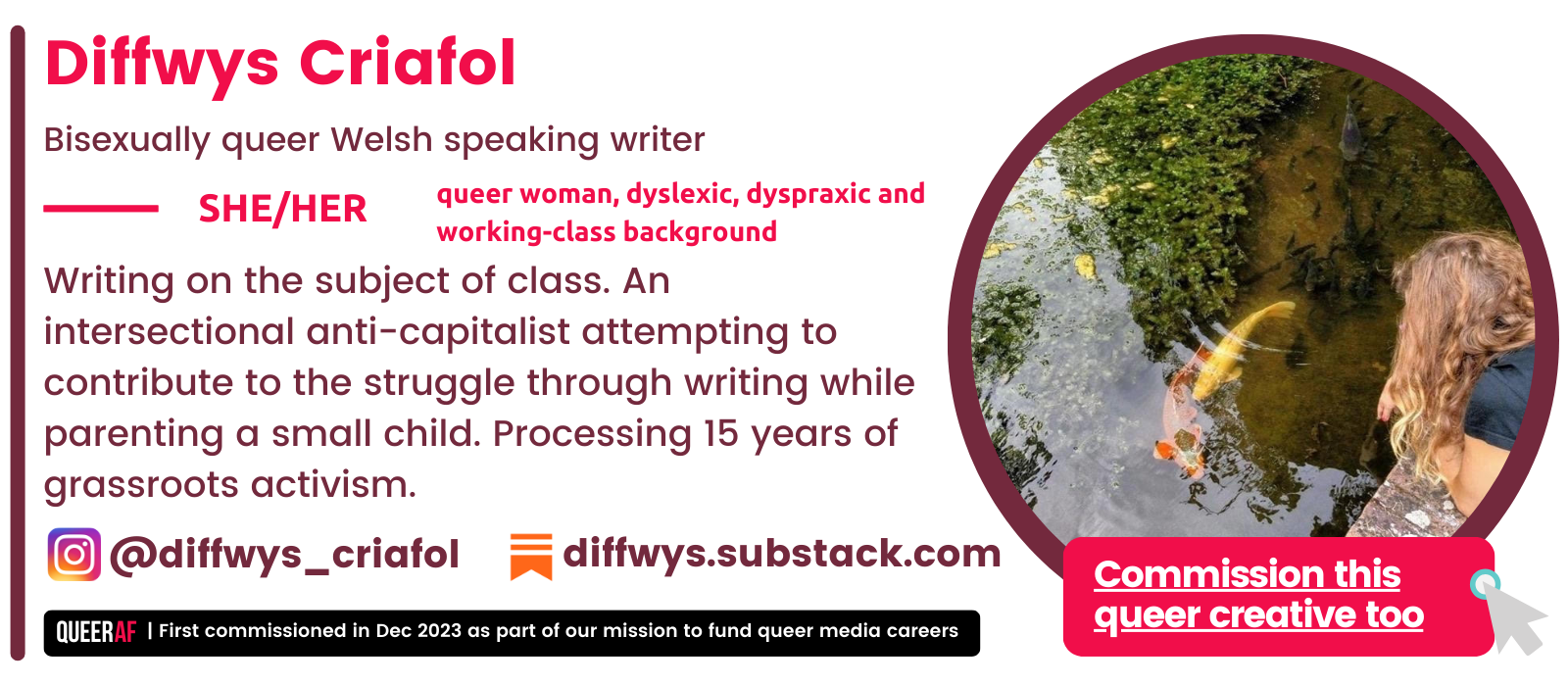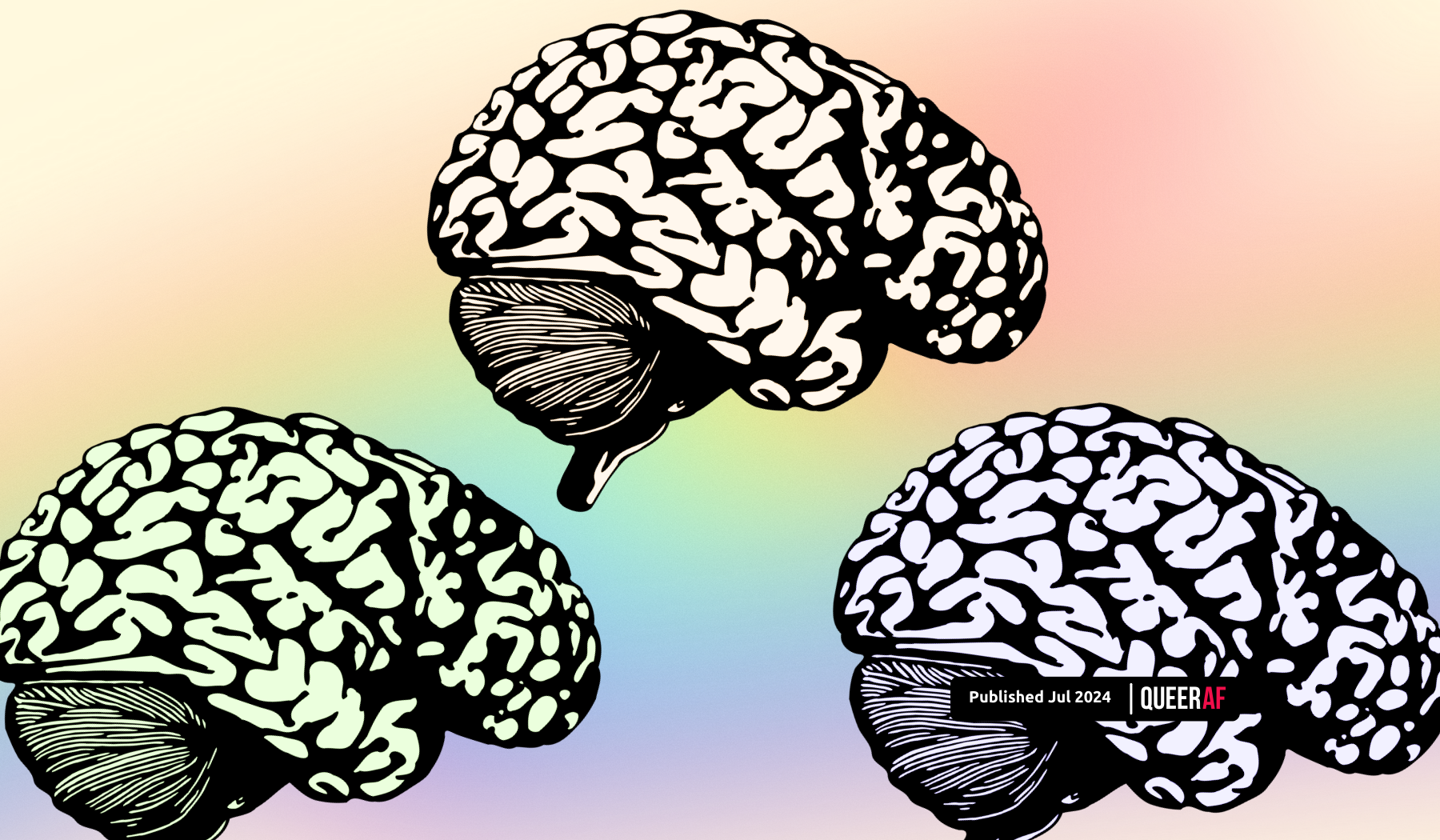
More and more of us are coming to terms with not only our queer identities, but also our neurodiversity.
I first came across the term “neuroqueer” in an article about a local writer and it captured my imagination.
It’s a framework that intersects the fields of neurodiversity and queer theory. For many, it’s a way of engaging in the ‘queering’ of one's own neurocognitive processes, by allowing ourselves to move beyond what is seen as the ‘neurocognitive norm’. Or, if you will, it’s about celebrating your difference and making it work for you - not for everyone else.
My own neurodiversity journey started when I was diagnosed with dyslexia and dyspraxia while at university. I also came to realise I was queer around the same time.
More recently, I was told I should seek an ADHD assessment. But when I sought help with this the GP told me it’s unlikely to happen - the lists are too long. Meanwhile, I gained some coping strategies from books such as “It's Not A Bloody Trend” by Kat Brown. Accessing this information, and understanding myself through this lens, is enough for me at the moment.
But it did spark an investigation for me.
In recent years there has been an exponential rise in diagnosis of neurodiversity, especially in women and people of marginalised genders. As we understand more, and with pandemic lockdowns giving some time for more introspection, more and more people have sought to be formally diagnosed, or are self diagnosing where assessments aren’t available.
As with any rise in numbers, some have questioned the validity of these new diagnoses. But there are nuanced reasons for the increase. It’s not a ‘social contagion’ - it’s about people being able to access information, and seeing themselves represented in it.
Even progressive voices in media, such as the feminist Polyester Podcast, have created content provocatively asking “Why Is Everyone 'Neurospicy' Now?” I wasn't sure about the title, so I headed to the comments. One commenter captured what I was worried about: “This is the same rhetoric used when people say that “everyone is queer these days”.
The “it’s just a trend” or “just a phase” attitude is reminiscent of age-old queerphobias of all kinds. Denying people reality and de-validating their experiences in headlines that don’t capture nuance can be damaging.
I remember when I told a friend about my first queer relationship. She reacted by rolling her eyes and implying that I was just attention-seeking. Now, as I express to friends that I think I have ADHD all these years later, I feel a hesitancy. I fear the same reaction, that I’ll be dismissed with comments like ‘well everyone is a bit nowadays’.
Many media figures still employ a pathology paradigm when talking about neurodiversity, starting from an assumption that significant divergences from dominant sociocultural norms of cognition represent some form of deficit, defect, or pathology. In short, they imply that if you’re neurodiverse, there’s ‘something wrong with you’.
In their book “Neuroqueer Heresies”, Nick Walker makes the case that saying neurodivergence is an “illness” is similar to saying that being queer is an illness. This idea that different sexualities or gender identities are some kind of mental illness still persists despite the World Health Organisation declassifying both as diseases many years ago. It’s thanks to this harmful narrative that conversion practices shockingly remain legal in the UK.
“Inside Our Autistic Minds” takes an enlightening approach to discussing neurodiversity. The BBC documentary shows how the world disables neurodiverse people by putting barriers up and expecting everyone to interact in the same way.
It follows Murray, who describes the hurt of being spoken about by others as if he wasn't there. He talks about being infantilised or having assumptions made about his intelligence.
He is an insightful young man who has the capacity to communicate deeply about his experience with the right tools and support. It’s people’s ignorance regarding his autism that is hurtful to him, not his autism itself.
As I get older, more and more friends are “coming out” as queer, trans and neurodivergent. In many cases there seems to be some overlap. There is some evidence to suggest that neurodivergent people are more likely to identify as queer.
What I see more and more though, is the parallels between neurodiversity and queerness itself.
Walker discusses how masking, a strategy used by some autistic people to appear non-autistic in order to blend in and be more accepted in society, has a parallel in how queer people may self-police things like hand movements if they’re seen as too effeminate.
Neuroqueering is a response that puts the individual - not cultural norms - first. By applying lessons of rejecting heteronormativity, we can act against neuro-normativity too.
Neurodivergence should be taken seriously - everyone’s experience of neurodivergence is valid wherever they fall on the spectrum, in the same way as everyone’s right to identify as queer should be respected, regardless of what kind of relationship they are in or how they present.
However, applying neuroqueer theory could help liberate those of us, deemed ‘spicy’ by the media, to be tasty just the way we are.

Get the Queer Gaze in your inbox each week with our free weekly newsletter or pitch to write an edition for us now.
QueerAF has partnered with Inclusive Journalism Cymru.
Together we're running a dedicated series of think pieces as part of a unique set of Queer Gaze commissions - our landmark writing scheme.
The articles are being written by three LGBTQIA+ journalists from Inclusive Journalism Cymru's network.
The Queer Gaze is a space in the QueerAF newsletter to commission emerging and underrepresented queer creatives to get published, receive mentorship, and kickstart your career.
Each commission comes with a unique 'retrospective' sub-editing session designed to put you in control of your article.
It's helping Welsh LGBTQIA+ creatives build journalistic craft and strategic communication skills.
You can support our work by becoming a QueerAF member.










